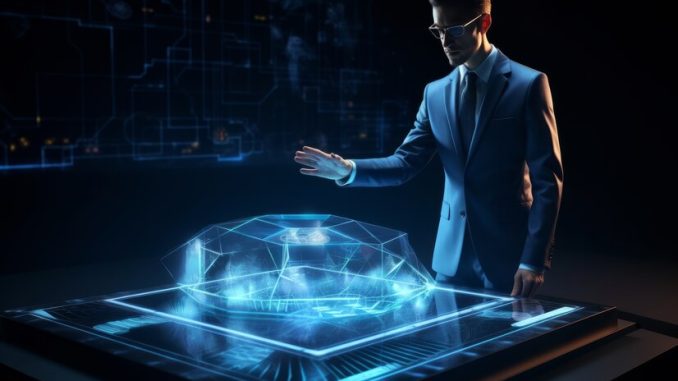
Artificial Intelligence: The New Frontier
Artificial Intelligence (AI) stands at the forefront of technological innovation. Once the realm of science fiction, AI has now permeated every industry, from healthcare to finance. Machine learning algorithms can analyze vast amounts of data to identify patterns and make decisions faster and more accurately than humans. In healthcare, AI is revolutionizing diagnostics and treatment planning by analyzing medical images and patient data to predict disease outcomes and personalize treatment plans. In finance, AI-driven algorithms are enhancing risk management, automating trading, and even offering personalized financial advice.
The rise of AI-powered virtual assistants, such as Siri, Alexa, and Google Assistant, has also transformed the way we interact with our devices. These assistants can now understand natural language, anticipate user needs, and perform complex tasks, making our lives more convenient and connected.
Blockchain: Beyond Cryptocurrency
Blockchain technology, best known as the foundation of cryptocurrencies like Bitcoin, is now being applied to a wide range of industries beyond finance. Its decentralized and secure nature makes it ideal for applications where trust and transparency are paramount. In supply chain management, blockchain is being used to track the journey of goods from manufacturer to consumer, ensuring authenticity and reducing fraud. In the legal field, smart contracts—self-executing contracts with the terms directly written into code—are streamlining processes and reducing the need for intermediaries.
Moreover, blockchain is playing a crucial role in the development of decentralized finance (DeFi), which aims to create a more open and accessible financial system. DeFi platforms allow users to lend, borrow, and trade assets without relying on traditional financial institutions, offering greater control over their finances.
5G Connectivity: The Backbone of the Future
The rollout of 5G networks is set to revolutionize the way we connect to the internet. With speeds up to 100 times faster than 4G, 5G will enable real-time communication between devices, powering the Internet of Things (IoT) and paving the way for innovations such as autonomous vehicles, smart cities, and remote surgery. The low latency of 5G networks will also enhance the performance of virtual and augmented reality applications, creating new possibilities for entertainment, education, and training.
5G is not just about faster internet; it’s about creating a more connected world. The increased bandwidth and speed will allow for the seamless integration of billions of devices, from household appliances to industrial machines, creating a truly interconnected ecosystem.
Quantum Computing: The Next Leap in Computing Power
Quantum computing represents a significant leap forward in computing power, capable of solving complex problems that are currently beyond the reach of even the most powerful supercomputers. Unlike classical computers, which process information in bits (0s and 1s), quantum computers use quantum bits, or qubits, which can represent both 0 and 1 simultaneously. This enables quantum computers to perform multiple calculations at once, drastically reducing the time required to solve complex problems.
While still in its early stages, quantum computing holds immense potential in fields such as cryptography, drug discovery, and material science. For instance, quantum computers could crack encryption codes that are currently considered unbreakable, posing both opportunities and challenges for cybersecurity. In drug discovery, quantum simulations could model complex molecular interactions, accelerating the development of new treatments for diseases.
Sustainable Technology: The Green Revolution
As concerns about climate change continue to grow, there is a rising demand for sustainable technology that minimizes environmental impact. Innovations in renewable energy, such as solar and wind power, are making clean energy more accessible and affordable. Advances in battery technology are also enabling more efficient storage of renewable energy, addressing one of the major challenges of renewable energy adoption.
Moreover, the development of energy-efficient devices and smart grids is helping to reduce energy consumption and carbon emissions. For example, smart thermostats can learn user preferences and adjust heating and cooling systems accordingly, while smart grids optimize electricity distribution to reduce waste.
Sustainable technology is also driving innovation in agriculture, with precision farming techniques that use data and automation to optimize crop yields while minimizing water and fertilizer use. Vertical farming, which involves growing crops in stacked layers, is another emerging trend that reduces land use and enables year-round production in urban areas.
Conclusion
The digital age is characterized by rapid technological advancements that are transforming every aspect of our lives. From AI and blockchain to 5G and quantum computing, these innovations are creating new opportunities and challenges, reshaping industries, and redefining what is possible. As we continue to explore the potential of these technologies, it is essential to consider their ethical implications and ensure that they are developed and deployed in a way that benefits all of humanity. The future is digital, and the innovations of today will lay the foundation for the world of tomorrow.